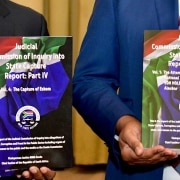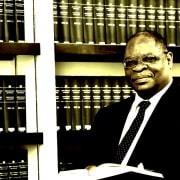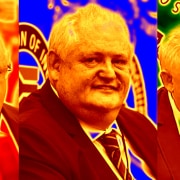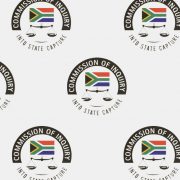|
Getting your Trinity Audio player ready...
|
The return of Vytjie Mentor to the stand and a glimpse into what is coming from Ipid boss Robert McBride – the week that was at the commission of inquiry into state capture.
Former ANC MP Mentor was the first witness to undergo cross-examination this week, and it did not look good for her, for the most part. Only two of the people implicated in her evidence got as far as examination, but it was mainly the outcome of the commission’s investigation of her claims in August last year, that shook her credibility. Mentor claimed in her evidence that Ajay Gupta offered her the post of minister of public enterprises in 2010, during a meeting at his Saxonwold home, while former president Jacob Zuma was present in the house. Although Gupta applied for permission to cross-examine Mentor, his application was denied by the commission chair, Deputy Chief Justice Raymond Zondo, as he was not prepared to return to South Africa from Dubai, to be cross-examined by the commission’s legal team in turn.
The lawyers of Lakela Kaunda, the former chief of staff in the Presidency, and Hawks senior official advocate Mandla Mtolo questioned Mentor on Wednesday, each for 30 minutes, as ruled by Zondo. Another Hawks official, Zintle Mnonopi, had initially applied for the same privilege, but later withdrew.
Mentor had claimed in her testimony in August last year that Kaunda called her to invite her to a meeting with Zuma in Gauteng in 2010. Because Mentor had been eager to meet with Zuma for months, she wasn’t fazed by the request, which meant she would have to fly up from Cape Town the very next morning. The date of the phone call came under scrutiny this week, as Mentor had previously testified that she could not place it on an exact date, but knew that it happened after a state visit to China she had been part of in August. A common argument between the cases of Kaunda’s and Mtolo’s lawyers, advocate Henry Cowley and Vincent Sewela respectively, was that Mentor’s account changed depending on who she was speaking to.
She had submitted statements to the Hawks in 2016 and to the commission in 2018, and conducted an interview with the Office of the Public Protector in 2016. According to Cowley, the transcript of the public protector does not mention that prior to the telephonic conversation, there had been contact between the two women. To the commission, however, she said there had been text messages exchanged in the lead up to the phone call.
Mentor dismissed Kaunda’s phone records, submitted by Cowley, saying that they could not be authentic as the same network provider had told her that 2010 was too far back to source records, when she enquired for her own.
Sewela argued, similarly, that Mentor left out the detail of Mtolo persuading her to remove Zuma’s name from her statement, in the public protector interview. Mentor conceded this, but said the interview looked specifically at the Saxonwold meeting, and thus did not go into her issues at the Hawks.
She also dismissed flight records posed to her by evidence leader Mahlape Sello, and sourced from South African Airways, that revealed that she could not have travelled from Cape Town to Johannesburg on one of their flights at the time she claimed. The records, said Mentor, were not accurate.
Mentor also questioned the veracity of the Department of Home Affairs’ records, which revealed that Atul Gupta could not have been in China at the time that she said he was. She said the official records could be leaving out the possibility that Atul generally uses more than one passport. When Sello acknowledged the possibility, and further clarified that the records obtained were in relation to all of his known passports, Mentor remained resolute in her stance. She asked Zondo to consider that there was a parliamentary inquiry into the relationship between the Guptas and the department. For this reason, consideration for the official outcome of that inquiry should be made.
Mentor’s former parliamentary colleague, Dennis Bloem, testified on Thursday, to corroborate her testimony that she told him about her encounter with Ajay soon after it happened. He too laid charges against the Guptas and Zuma in 2016.
The commission’s team undertook an in loco inspection at the Gupta home in December. Witness Erna Wiese was part of a team of senior architects, valuators and surveyors working within the Department of Public Works, who were mandated with accompanying Mentor and a team from the commission on an inspection of the house. The brief that Wiese and her colleagues received was that they would assist the commission by following the lead of Mentor, who on the day would point out distinctive features that she remembered from her visit to the house nine years ago.
The surveying team could not make any conclusive findings. If there needs to be proof beyond doubt that the features had indeed been in the house, said Wiese, a team of specialists would have to be appointed. The public works department, however, does not currently have the expertise required now, which would include a paint expert, a material conservator and an architect who can conduct a historical mapping exercise. This sort of investigation, said Wiese, would cost about R800 000 per month, excluding the cost of restoration of structures back to their original form.
Proceedings ended on Thursday afternoon with news that the much-anticipated testimony of McBride, was postponed indefinitely. Although McBride was present and ready to testify on the day, the head of the commission’s legal team advocate Paul Pretorius explained that because his sworn statement was only received late on Wednesday, the commission’s lawyers had not had sufficient time to notify the people implicated in his evidence.
Over 30 people, some high profile, are named by McBride, and as per the regulations of the commission, each is granted a total of 14 days within which to submit an answering statement and/or apply for permission to cross-examine.
The commission proceeds on Monday 18 February.







